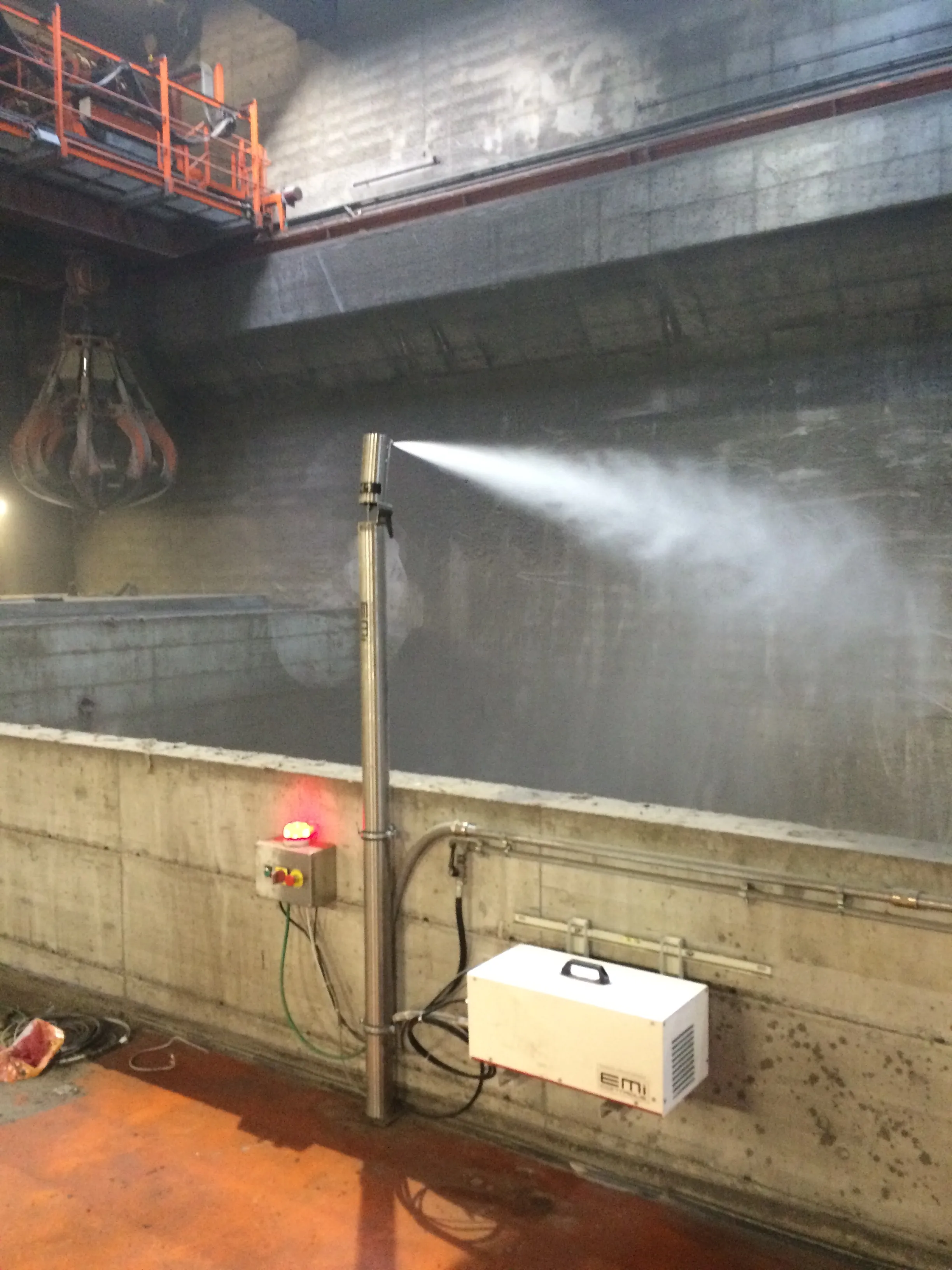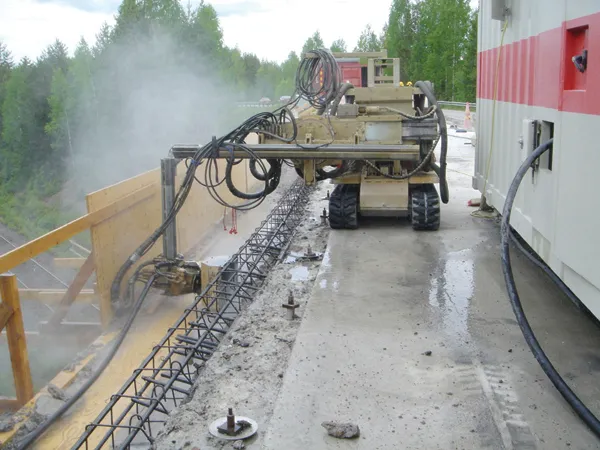Italian company, Emicontrols, which is, based in Bolzano in the north of the country, and which is part of the Technoalpin Group, has developed, during the past year, a complete new range of products, working with high-pressure pumps.
Among them there is the H1 Swing, which the company says can be used in open and closed spaces, such as quarries, deposits materials, steel mills, coal processing plants, cement factories, recycling plants, hangars, and in all indoor and outdoor places where dust represents
March 11, 2016
Read time: 2 mins

Italian company, 5109 Emicontrols, which is, based in Bolzano in the north of the country, and which is part of the 5110 Technoalpin Group, has developed, during the past year, a complete new range of products, working with high-pressure pumps.
Among them there is the H1 Swing, which the company says can be used in open and closed spaces, such as quarries, deposits materials, steel mills, coal processing plants, cement factories, recycling plants, hangars, and in all indoor and outdoor places where dust represents a problem that must be solved with low water and energy consumption.
“Thanks to its special construction (only 20cm dimensions) the H1 Swing can be mounted at any point where it needs a targeted and efficient atomisation,” says Emicontrols.
“H1 Swing is a rotating head totally constructed in stainless steel with a vertical manual tilt (-10 °/+ 20 °), and automatic rotation of 360°, programmable by 15˚ sections.”
Its throw range can vary from 5m up to a maximum of 18m, and the scope of the H1 Swing can vary from a minimum of 1litre/minute to a maximum of 15litres/minute depending of the pump that feeds it.
The compact touch-screen control panel allows users to view all the various functions in real-time and to control dozens of H1 Swings through communication via BUS or RADIO.
Among them there is the H1 Swing, which the company says can be used in open and closed spaces, such as quarries, deposits materials, steel mills, coal processing plants, cement factories, recycling plants, hangars, and in all indoor and outdoor places where dust represents a problem that must be solved with low water and energy consumption.
“Thanks to its special construction (only 20cm dimensions) the H1 Swing can be mounted at any point where it needs a targeted and efficient atomisation,” says Emicontrols.
“H1 Swing is a rotating head totally constructed in stainless steel with a vertical manual tilt (-10 °/+ 20 °), and automatic rotation of 360°, programmable by 15˚ sections.”
Its throw range can vary from 5m up to a maximum of 18m, and the scope of the H1 Swing can vary from a minimum of 1litre/minute to a maximum of 15litres/minute depending of the pump that feeds it.
The compact touch-screen control panel allows users to view all the various functions in real-time and to control dozens of H1 Swings through communication via BUS or RADIO.








